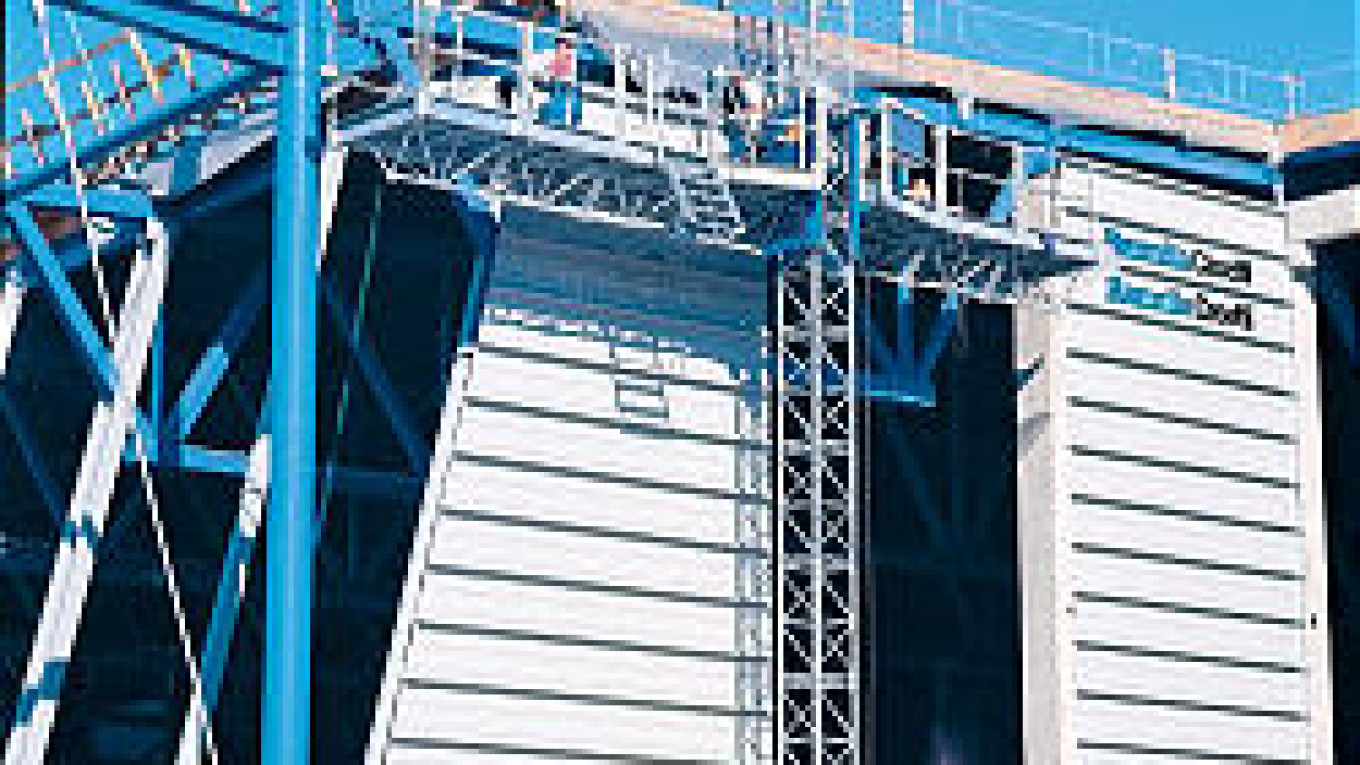"There is a group of very trustworthy Russian [construction] companies," said Markku Aaltonen, general director of Rannila and vice president for Russia of Rannila's parent company, Finnish steel company Rautaruukki. "The group of those companies is increasing. These are and will be good partners for us."
However, sales are not only dependent on construction firms but also on their customers, Aaltonen said last week in an interview.
"The customer has to have the idea that he wants a quality product," he said.
Rannila has factories in St. Petersburg and Taldom, in the Moscow region. It has branch offices in Rostov-on-Don and Yekaterinburg and plans to open more at some point, he said.
He and other leading panel makers' representatives declined to put a figure on their market share, saying the market was dominated by several leading manufacturers, but that there were many small competitors.
Aaltonen said several barriers stood in the way of the business growing to its full potential in Russia. Rannila has experienced regular delays with customs.
"Russian authorities should consider what to do about these if they want trade to grow," he said.
When Russia clears the hurdles keeping it from entering the World Trade Organization, businesses will see direct improvement, he added.
Rannila is waiting for Russian laws on protecting investments to be introduced. Last year, it invested only about $100,000 in Russia but leased machinery worth $3 million from Finland, he said.
Aaltonen said Rannila's Russian sales, which include roofing products, totaled about $50 million last year and included items imported from Finland, Estonia and Ukraine.
This was relatively small considering the size of the market, he said, but one change looms sometime in the future that could boost sales enormously -- when Russian fuel prices are raised to world levels.
"The cost of the energy in Russia today is a fraction of the energy costs in the West, and they will continue to waste it while insulation is not financially interesting," he said.
In Finland, Rannila's products are widely used because the buildings clad in them are cheap to run. The flow of air between the attached panels and the structure of the building also avoided problems such as rising damp and mildew that were bad for the underlying structure and for the health of people inside the building, he added.
Rannila's products are not cheap, he said, but customers get their return through efficient energy use.
"The [panels] are for office buildings service stations, schools, shops and industrial buildings," he said.
One of the best known projects that Rannila supplied materials for was Russia's first IKEA megastore in Khimki, built by top-end Swedish-based construction company Skanska.
Aaltonen said the products Rannila supplied were polyester-coated steel panels painted in Sweden by another Rautaruukki subsidiary, Gasse. Rannila had recently provided materials for an extension to the store, he added.
Paroc, another Finnish company, is supplying panels for Moscow's second IKEA store and has been involved in the construction of most of Moscow's Ramstores; it also supplies panels to the Mars and Frito-Lay factories at Stupino.
Juha Laihonen, regional manager of Eastern Europe and Finland Paroc OY AB panel systems, said in a telephone interview that Paroc has been the market leader in Russia and related this to the quality of its products.
"We pick the quality of the raw materials, and we ask our suppliers to check the quality of their materials before they send them to us."
Laihonen said the company had been on the market for 10 years, and business was rebounding after the 1998 financial crisis. Paroc panels are on buildings across the country, but the company does not have a local factory.
On the web site www.bizzcontact.com, the advantages of Paroc's panels are described as quick and easy to install.
"Based on a core of structural rock wool bonded to color-coated steel sheets, the sandwich panels can be employed as cladding, partitions and ceilings. They are fire protection, heat insulation, structural element and decoration all in one," the web site says.
Both the Finnish firms use steel panels, but described Aluconbond products, which are made from aluminum, as a major competitor.
Grigory Samsonov, manager of Alkon Trade, which distributes German-manufactured Aluconbond products across Russia, said in a telephone interview that Aluconbond had unique high-quality products and there were no direct competitors.
He said Alkon Trade has a factory in Moscow and confirmed that the market for sandwich panels is growing.
Perhaps one of the strongest signs that insulated panels are indeed coming into demand is the number of bootleg Rannila products produced in Russia.
Aaltonen said the company has managed to settle its dispute with makers of bootleg products without going to court.
A Message from The Moscow Times:
Dear readers,
We are facing unprecedented challenges. Russia's Prosecutor General's Office has designated The Moscow Times as an "undesirable" organization, criminalizing our work and putting our staff at risk of prosecution. This follows our earlier unjust labeling as a "foreign agent."
These actions are direct attempts to silence independent journalism in Russia. The authorities claim our work "discredits the decisions of the Russian leadership." We see things differently: we strive to provide accurate, unbiased reporting on Russia.
We, the journalists of The Moscow Times, refuse to be silenced. But to continue our work, we need your help.
Your support, no matter how small, makes a world of difference. If you can, please support us monthly starting from just $2. It's quick to set up, and every contribution makes a significant impact.
By supporting The Moscow Times, you're defending open, independent journalism in the face of repression. Thank you for standing with us.
Remind me later.


